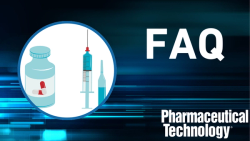
OR WAIT null SECS
- About Us
- Advertise
- Contact Us
- Editorial Info
- Editorial Advisory Board
- Do Not Sell My Personal Information
- Privacy Policy
- Terms and Conditions
© 2026 MJH Life Sciences™ , Pharmaceutical Technology - Pharma News and Development Insights. All rights reserved.
PhRMA and GPhA Debate Authorized Generics, Pfizer Authorizes Zoloft Generic
ePT--the Electronic Newsletter of Pharmaceutical Technology
Does the competition from authorized generics really help lower drug prices and boost healthcare savings?
Does the competition from authorized generics really help lower drugprices and boost healthcare savings? This was the question as thedebate over the increasing practice of innovator companies marketingauthorized generics heated up last week with both the PharmaceuticalResearch and Manufacturers of America (PhRMA, www.phrma.org) and theGeneric Pharmaceutical Association (GPhA, www.gphaonline.org)expressing sharp contrasting opinions.
According to PhRMA, an authorized generic is a drug that is distributedby a generic company with permission from the innovator company. Thedrug is marketed under the same new drug application as the brandedproduct. An authorized generic can compete in the market during the180-day exclusivity period awarded to generic companies that break abranded drug's patent before it expires.
PhRMA released a study conducted and prepared by IMS Consulting, adivision of IMS Health (Plymouth Meeting, PA, www.imshealth.com),that assessed the costs benefits of marketing authorized generics. IMSevaluated nine cases studies with and without authorized generics.According to a statement released by PhRMA, this evaluation found that"with an authorized generic on the market during the exclusivityperiod, discounts to brand medicines were greater--on average 15.8%points greater--than instances when a generic company did not facecompetition from an authorized generic." The report also claimed thatthe presence of authorized generics increased savings to the overallhealthcare system by $212.8 million across the cases studies.
The report quickly prompted GPhA to issue a statement in response tothe findings. The statement says the study released by PhRMA"misrepresents the real issues" related to the practice of marketingauthorized generics. "Given that this data represents pharmaceuticaldistribution data--not retail consumer data--the result is an inaccurateimplication that consumers will realize savings from authorizedgenerics." Moreover, claiming that "authorized generics are nothingmore than brand pharmaceutical products masquerading as generics," GPhAstated that "authorized generics will lead to delayed genericcompetition and a substantial reduction in savings for all consumersand America's healthcare system."
GPhA also reports that the introduction of authorized generics"interferes with competition from the true generic product" and calledon Congress to "close this loophole in the Hatch-Waxman Act."
Meanwhile, Pfizer (New York, NY, www.pfizer.com)this week became the latest industry manufacturer to announce it willintroduce an authorized generic to the market. The company's genericunit, Greenstone, will launch an authorized version of Pfizer'sblockbuster depression drug "Zoloft" (Sertraline), which lost its patent on June 30. The product will compete with the generic version manufacturedby Teva Pharmaceutical (Jerusalem, Israel, www.tevapharm.com), whichwas the first company to challenge the patent and which gained finalFDA approval of its abbreviated new drug application also on June 30.



